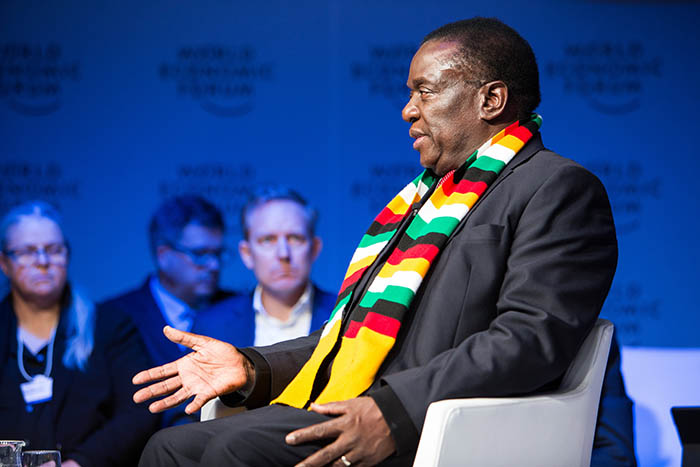Contents – Modi’s India: The Age of Intolerance
Contents
The central theme of the Spring 2023 issue of Index is India under Prime Minister Narendra Modi.
After monitoring Modi’s rule since he was elected in 2014, Index decided to look deeper into the state of free expression inside the world’s largest democracy.
Index spoke to a number of journalists and authors from, or who live in, India; and discovered that on every marker of what a democracy should be, Modi’s India fails. The world is largely silent when it comes to Narendra Modi. Let’s change that.
Up Front
Can India survive more Modi?, by Jemimah Seinfeld: Nine years into his leadership the world has remained silent on Modi's failed democracy. It's time to turn up the temperature before it's too late.
The Index, by Mark Frary: The latest news from the free speech frontlines. Big impact elections, poignant words from the daughter of a jailed Tunisian opposition politician, and the potential US banning of Tik Tok.
Features
Cultural amnesia in Cairo, by Nick Hilden: Artists are under attack in the Egyptian capital where signs of revolution are scrubbed from the street.
‘Crimea has turned into a concentration camp’, by Nariman Dzhelal: Exclusive essay from the leader of the Crimean Tatars, introduced by Ukranian author Andrey Kurkov.
Fighting information termination, by Jo-Ann Mort: How the USA's abortion information wars are being fought online.
A race to the bottom, by Simeon Tegel: Corruption is corroding the once-democratic Peru as people take to the streets.
When comics came out, by Sara Century: The landscape of expression that gave way to a new era of queer comics, and why the censors are still fighting back.
In Iran women’s bodies are the battleground, by Kamin Mohammadi: The recent protests, growing up in the Shah's Iran where women were told to de-robe, and the terrible u-turn after.
Face to face with Iran’s authorities, by Ramita Navai: The award-winning war correspondent tells Index's Mark Frary about the time she was detained in Tehran, what the current protests mean and her Homeland cameo.
Scope for truth, by Kaya Genç: The Turkish novelist visits a media organisation built on dissenting voices, just weeks before devastating earthquakes hit his homeland.
Ukraine’s media battleground, by Emily Couch: Two powerful examples of how fraught reporting on this country under siege has become.
Storytime is dragged into the guns row, by Francis Clarke: Relaxed gun laws and the rise of LGBTQ+ sentiment is silencing minority communities in the USA.
Those we must not leave behind, by Martin Bright: As the UK government has failed in its task to rescue Afghans, Index's editor at large speaks to members of a new Index network aiming to help those whose lives are in imminent danger.
Special Report: Modi's India
Modi’s singular vision for India, by Salil Tripathi: India used to be a country for everyone. Now it's only for Hindus - and uncritical ones at that.
Blessed are the persecuted, by Hanan Zaffar: As Christians face an increasing number of attacks in India, the journalist speaks to people who have been targeted.
India’s Great Firewall, by Aishwarya Jagani: The vision of a 'digital India' has simply been a way for the authoritarian government to cement its control.
Stomping on India’s rights, by Marnie Duke: The members of the RSS are synonymous with Modi. Who are they, and why are they so controversial?
Bollywood’s Code Orange, by Debasish Roy Chowdhury: The Bollywood movie powerhouse has gone from being celebrated to being used as a tool for propaganda.
Bulldozing freedom, by Bilal Ahmad Pandow: Narendra Modi's rule in Jammu and Kashmir has seen buildings dismantled in line with people's broader rights.
Let’s talk about sex, by Mehk Chakraborty: In a country where sexual violence is abundant and sex education is taboo, the journalist explores the politics of pleasure in India.
Uncle is watching, by Anindita Ghose: The journalist and author shines a spotlight on the vigilantes in India who try to control women.
Comment
Keep calm and let Confucius Institutes carry on, by Kerry Brown: Banning Confucius Institutes will do nothing to stop Chinese soft power. It'll just cripple our ability to understand the country.
A papal precaution, by Robin Vose: Censorship on campus and taking lessons from the Catholic Church's doomed index of banned works.
The democratic federation stands strong, by Ruth Anderson: Putin's assault on freedoms continues but so too does the bravery of those fighting him.
Culture
Left behind and with no voice, by Lijia Zhang and Jemimah Steinfeld: China's children are told to keep quiet. The culture of silence goes right the way up.
Zimbabwe’s nervous condition, by Tsitsi Dangarembga: The Zimbabwean filmmaker and author tells Index's Katie Dancey-Downes about her home country's upcoming election, being arrested for a simple protest and her most liberating writing experience yet.
Statues within a plinth of their life, by Marc Nash: Can you imagine a world without statues? And what might fill those empty plinths? The London-based novelist talks to Index's Francis Clarke about his new short story, which creates exactly that.
Crimea’s feared dawn chorus, by Martin Bright: A new play takes audiences inside the homes and families of Crimean Tatars as they are rounded up.
From hijacker to media mogul, Soe Myint: The activist and journalist on keeping hope alive in Myanmar.

